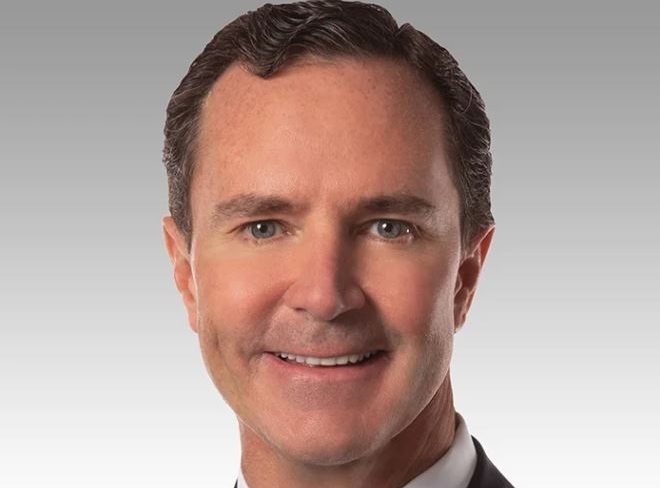By Kimberly Palmer | NerdWallet
The investing information provided on this page is for educational purposes only. NerdWallet, Inc. does not offer advisory or brokerage services, nor does it recommend or advise investors to buy or sell particular stocks, securities or other investments.
The term “self-care” might conjure images of relaxing bubble baths or massages. But true self-care encompasses your finances, too.
“Self-care is about taking care of yourself so you can look better, feel better and be prepared for the future,” says Stacy Miller, a certified financial planner and founder of BayView Financial Planning in Tampa, Florida. “Financial self-care is an aspect of that. You’re giving your bank accounts a facial.”
Money experts say financial self-care starts with looking at your current money practices, then continues toward developing a solid plan for the future. And just like a skincare routine, everyone’s approach looks a little different.
Reflect on your past
Taking time to consider your “money story,” or how you grew up thinking about money, can be a good place to start, says Lindsey Konchar, a financial therapist in Minnesota. “Were your parents open about it? Were you taught anything about money?” she suggests asking yourself.
From there, you can try to shift the way you talk to yourself about money, such as by moving from an attitude of “I am bad with money” to “I am learning about money and am excited to be on this new financial self-care journey,” Konchar adds.
Mykail James, a financial educator in Washington, D.C., known to her social media followers as “the Boujie Budgeter,” says cultivating a sense of gratitude can also be beneficial. “Affirmations can help overcome negative thought patterns,” she says. She suggests ones such as, “I deserve the money I receive for work” or “I am worthy of being financially secure.”
(Kimberly Palmer shares how she practices financial self-care.)
Let your goals inform your habits
James likes to pick a few specific goals to focus on at any one time and then brainstorm about how to achieve them. For example, she likes to scroll through million-dollar home listings posted online and then calculate how much she would need to earn to be able to afford one. “That kind of thought experiment helps me formulate my goals,” she says.
Taking tangible steps toward your goals helps reduce stress and worry, says Robert Stromberg, a CFP and founder of Mountain River Financial in Abington, Pennsylvania. Since goals vary so much by person, those steps also differ, but they often start with a close review of your overall financial picture, including current spending and saving behavior.
Track spending
Budgeting apps can assist with that kind of financial review, says Maggie Klokkenga, a CFP and financial planner at Abundo Wealth in Morton, Illinois. “The first step is to just track your expenses. It’s like stepping on the scale. No one wants to look at it, but then you can become aware of your numbers,” she says.
Getting “financially naked” in that way can inspire some shifts in your spending to better align with your goals, she adds. Using apps that automatically sort your spending into different categories and flag subscriptions or unusually high amounts can also help.
“When people are aware of their numbers and start to take action with intention, they feel more in control,” Klokkenga says.
Ramp up savings
Stromberg notes that “the vast majority of clients I work with are under-saving.” He suggests prioritizing an emergency fund, which ideally holds three to six months’ worth of expenses, as well as saving for any known large expenses, such as a new car.
Being aggressive about savings “gives people a tremendous amount of comfort,” he says, because you know you are prepared for different scenarios. Keeping the money in a high-yield savings account insured by the Federal Deposit Insurance Corp. allows it to continue to grow until you need it.
Save what you can, even if it’s less than the recommended amount, James recommends. “Saving a little money is better than no money, so start wherever you are, and you can always grow it over time,” she says.
Automating your savings so a certain amount is transferred from your checking account or paycheck into your high-yield savings account each month can reduce stress, Konchar says. Anything you can do to reduce the mental load of managing your money allows you to spend that mental energy on other things, she says.
Take advantage of employee benefits
Contributing money to an employer-sponsored retirement plan like a 401(k); funding tax-advantaged flexible spending accounts for health care and child care expenses; and signing up for any other employee benefits like disability and life insurance can also contribute to your overall financial self-care, says Kevin Keller, CEO at CFP Board, a financial planner association.
“Consumers can enjoy life today and feel more comfortable, knowing they are on track to achieve their life goals,” he says.
Any good self-care routine also involves smaller daily pleasures, too, which is why James suggests giving yourself some kind of reward, such as a leisurely walk or an ice cream, after working on your finances. “Positive reinforcement gets people to continue to do something good,” she says.
More From NerdWallet
6 Ways to Track Monthly Expenses
What Is a High-Yield Savings Account?
What Is a Flexible Spending Account?
Kimberly Palmer writes for NerdWallet. Email: kpalmer@nerdwallet.com. Twitter: @kimberlypalmer.
The article 5 Ways to Practice Financial Self-Care originally appeared on NerdWallet.




